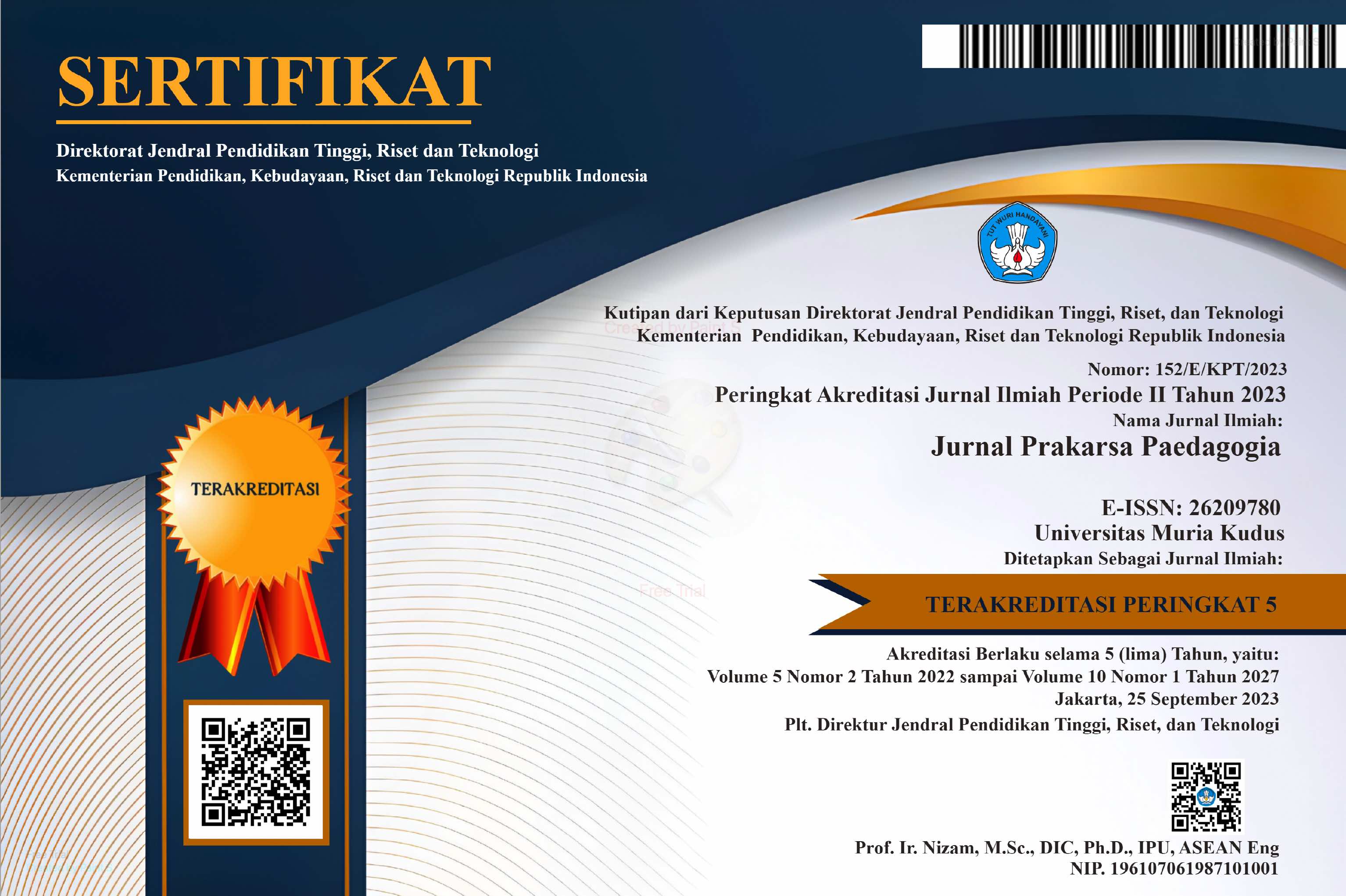Penerapan Cognitive Behavioral Therapy Untuk Meningkatkan Self-Identity Generasi Z Siswa Kelas VIII A di SMP Negeri 3 Denpasar
Abstract
This study aims to examine the implementation of Cognitive Behavioral Therapy (CBT) to enhance self-identity among Generation Z students in class VIII A at SMPN 3 Denpasar. The research employed a quantitative approach with a pre-experimental design, specifically using the one-group pre-test post-test design. The subjects of the study consisted of 8 students from a single class. Data was collected through pre- and post-intervention questionnaires assessing self-identity. The results indicated a significant improvement in self-identity scores following the CBT intervention, with students showing increased self-awareness, self-acceptance, and a clearer sense of personal values. The findings suggest that CBT can be an effective method for enhancing self-identity in adolescents, particularly in the context of Generation Z students.
Keywords
Full Text:
107-115 (Bahasa Indonesia)References
Aini, D. K. (2019). Penerapan Cognitive Behaviour Therapy dalam Mengembangkan Kepribadian Remaja di Panti Asuhan. Jurnal Ilmu Dakwah, 39(1), 70. https://doi.org/10.21580/jid.v39.1.4432
Anggraini, A., Hartuti, P., & Sholihah, A. (2018). Hubungan Pola Asuh Orang Tua Dengan Kepribadian Siswa Sma Di Kota Bengkulu. Consilia : Jurnal Ilmiah Bimbingan dan Konseling, 1(1), 10–18. https://doi.org/10.33369/consilia.1.1.10-18
Ari Ramdhanu, C., & Sunarya, Y. (2019). Faktor-Faktor yang Mempengaruhi Identitas Diri. Journal of Innovative Counseling : Theory, Practice & Research, 3(1), 7–17. http://journal.umtas.ac.id/index.php/innovative_counseling
Ashari, F. (1989). Idetitas Diri. Universitas Islam Negeri Surabaya, 13–34. http://digilib.uinsby.ac.id/11373/5/babii.pdf
Ayun, Q., & Wibowo, N. R. (2020). Teknik Cognitive Behavioral Therapy untuk Meningkatkan Motivasi Berprestasi Mahasiswa. Analitika, 12(2), 159–168. https://doi.org/10.31289/analitika.v12i2.3701
Citra Kunia putri dan trisna insan Noor, 2011. (2013). Identitas Diri BAB II TINJAUAN PUSTAKA 1. Pengertian Identitas Diri Identitas. Analisis pendapatan dan tingkat kesejahteraan rumah tangga petani, 53(9), 1689–1699.
Dian Fitriani, & Debi Primanda. (2023). Intervensi Cognitive Behaviour Therapy dalam Mengatasi Perilaku Maladaptif: Program PKBI di PSBR Taruna Jaya 1. ALADALAH: Jurnal Politik, Sosial, Hukum dan Humaniora, 2(1), 172–182. https://doi.org/10.59246/aladalah.v2i1.646
Husni, M. A., & Purwaningsih, I. E. (2017). Identitas Diri Ditinjau Dari Kelekatan Remaja Pada Orang Tua Di Smkn 4 Yogyakarta. Jurnal Spirits, 4(1), 43. https://doi.org/10.30738/spirits.v4i1.1031
Mansur, A., & Ridwan, R. (2022). Karakteristik siswa generasi z dan kebutuhan akan pengembangan bidang bimbingan dan konseling. Educatio, 17(1), 120–130. https://doi.org/10.29408/edc.v17i1.5922
Utama, A. S., & Ambarini, T. K. (2023). Cognitive Behaviour Therapy untuk Mengatasi Gejala Post Traumatic Stress Disorder. Gadjah Mada Journal of Professional Psychology (GamaJPP), 9(2), 245. https://doi.org/10.22146/gamajpp.76983
Youarti, I. E., & Hidayah, N. (2018). Perilaku Phubbing Sebagai Karakter Remaja Generasi Z. Jurnal Fokus Konseling, 4(1), 143. https://doi.org/10.26638/jfk.553.2099
DOI: https://doi.org/10.24176/jpp.v7i2.14114
Refbacks
- There are currently no refbacks.
Copyright (c) 2025 Jurnal Prakarsa Paedagogia

This work is licensed under a Creative Commons Attribution-NonCommercial-ShareAlike 4.0 International License.
Visitors of the Paedagogia Prakarsa Journal Status
Country of Origin of Visitors:
Jurnal Prakarsa Paedagogia dari Fakultas Keguruan dan Ilmu Pendidikan Universitas Muria Kudus is licensed under a Creative Commons Attribution 4.0 International License.
Dedicated to:







